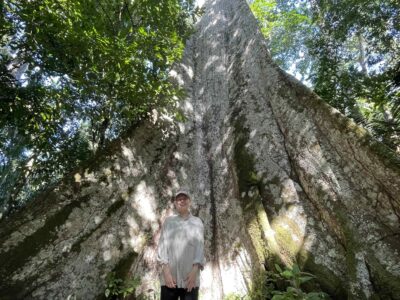
The planet’s “lungs” are on fire. The Amazon rainforest, which soaks up vast amounts of carbon from our atmosphere and provides a home to countless plants and animals, is blistering with record numbers of wildfires this year. Fueled by deforestation, global demand for beef, and dry conditions, fires in the Brazilian Amazon are up by 85 percent over last year. As of Sunday evening, more than 80,000 fires had blanketed nearly half the country in smoke, darkening skies in cities more than 1,700 miles away, and released the equivalent of 228 megatonnes — more than 251 thousand tons — of CO2 into the atmosphere. And the fires continue to burn.
As leaders in research on ecology, wildfires, and climate change, experts at the Earth Institute are leading the conversation over this environmental catastrophe.
Experts Available to Comment and Fact-Check
In an op-ed for the Washington Post, Ruth DeFries from Columbia University’s Department of Ecology, Evolution and Environmental Biology shared her eyewitness account of forest fires in Brazil in 2003. She explained how her team’s data helped to protect rainforest and enhance agricultural livelihoods, but pointed out that political change is reversing that progress.
The recent upswing in fires is “is bad news for people hundreds of miles downwind who breathe dangerous smoke from the fires,” DeFries wrote in an op-ed for Columbia News. “It is also bad news for everyone concerned about global warming. Tropical forests store vast amounts of carbon that would otherwise be in the atmosphere as a greenhouse gas. That carbon goes up in smoke as forests burn.”
Andrew Revkin, who heads up the Initiative on Communication and Sustainability at Columbia University’s Earth Institute and wrote a book about the Amazon rainforest, commented about its biological riches on NPR.
More Earth Institute experts are on-hand to answer questions on how forest fires impact ecosystems and human health, how factors such as temperature, precipitation, and climate change influence the spread of wildfires, and more.
Starting Conversations
Right here on the State of the Planet blog, Earth Institute experts are tackling reader questions about the wildfires and sharing solutions. Stay tuned for more!




Addressing the significant mass-burning of the Amazonian rainforest (the ecosystem biomass produces 20 percent of Earth’s oxygen), Brazil’s president Jair Bolsonaro told the rest of the rightfully concerned world, “You have to understand that the Amazon is Brazil’s, not yours.”
Earth’s eco-systems honour no national boundary. If only it were so, that the damage to the natural environment by morally and ethically corrupt governments and corporate puppet-masters was somehow poetically miraculously confined strictly to the owners’ territory.
It’s like humanity is confined to a massive interstellar spaceship, owned and operated by the fossil fuel industry, but on which we’re all permanently confined; and while we’re adamantly arguing over finite resources and how much one should have to pay for it, the spaceship is burning and toxifying at locations not normally investigated—or else those areas are occupied thus claimed and controlled by one narrowminded possessive party.
“Mind your own business,” asserted the Brazilian president, in what may be memorialized throughout the ages, if our species survives our own perverse collective nature.
To quote Jacob Marley’s ghost in rebutting Ebenezer Scrooge’s cold-cash-hearted mentality, “BUSINESS? Mankind was my business! Their common welfare was my business!”